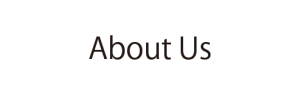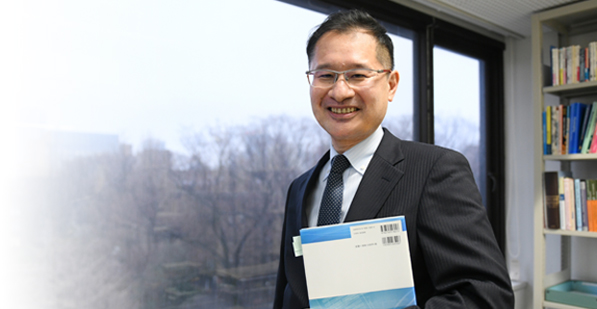Professor/Masahide Horita
専門分野:社会基盤マネジメント、社会意思決定論、事業制度設計
infrastructure systems management, group decision and negotiation, project governance
担当講義:マネジメント原論、社会基盤マネジメント特論、プロジェクトマネジメント、公共経営学
Foundations of Management Studies, Infrastructure Management, Project Management, Public Management
研究業績等(Researchmap):https://researchmap.jp/masahidehorita
1992年東京大学工学部土木工学科卒業,1994年東京大学大学院工学系研究科修士課程修了,1999年ロンドン・スクール・オブ・エコノミクス(LSE)博士課程修了(PhD),1999~2000年英国ダーラム大学ビジネススクールSenior Research Associate,2000年東京大学大学院工学系研究科講師,2002年同助教授,2007年同准教授,2010年東京大学大学院新領域創成科学研究科教授,2021年より東京大学大学院工学系研究科教授
Masahide Horita is currently a Professor at the Department of Civil Engineering, University of Tokyo. He received a PhD from the London School of Economics in 1999 and subsequently worked at Durham Business School as Senior Research Associate until he moved to the University of Tokyo in October, 2000. Lecturer (2000), Associate Professor (2002), Professor at the Graduate School of Frontier Sciences (2010), Professor at the Department of Civil Engineering, School of Engineering (2021).
■ 研究テーマの概要と展望
日本の建設産業、とりわけインフラ関連産業は大きな変革期にあります。老朽インフラの大規模な更新需要の一方で、人口減少などによる担い手確保といった逼迫した課題があり、これまでと同じような仕事のやり方、事業の仕方を続けていては社会のニーズに応えられなくなってしまう−−−そんな強い危機感を産業界全体が共有しています。
建設マネジメントや社会基盤マネジメントは、小さなプロジェクトから国の産業全体に亘るインフラ整備・運営管理まで、規模の大小を問わずその仕組み作りに欠かせない研究・実践分野です。実際に起こっている問題を分析的に捉えることによって解決策を生み出す。その積み重ねが国や世界の建設生産・管理システムを支えています。
例えば、担い手不足の課題には、①自動協調施工を用いてより施工の生産性を上げる。②政府の発注者・設計者・施工者の連携を促すため、これまで分断されていた情報を統合して共通の媒体やプラットフォームを作る。③技術者や技能労働者の良好な労働環境が確保されるような市場取引ルールや社会契約の仕組みを設ける。といった対策が求められますが、これらは全て社会基盤マネジメントの範疇です。それぞれの取り組みが社会問題の解決に直結することからも、その責任と使命を感じることができる、実にやり甲斐のある研究分野だと思います。
■ Areas of research interest and outlook
In Japan, we now face various issues in the infrastructure sector, including aging infrastructure and population decline. That leads us to re-examining all practice of how we manage infrastructure projects and services. Management research and practice have great impacts on outcomes of those projects from a municipal scale to a national scale as it relates to the entire system of project delivery. Attempts to look into the real problems analytically will, as we hope, result in practical solutions.
For example, in response to the labor shortage, we can: 1) enhance productivity through automation in construction; 2) create a common ICT platform for collaboration among employers, designers and contractors; and 3) introduce fair rules and regulations to the market so that construction engineers and technicians can work in a health and safe working environment. Those are all examples of infrastructure systems management.
■ 現在の研究に携わることになったきっかけとは?
私はインフラ整備や公共工事に対して、「賛否を含む異なる意見をどのように社会の意思決定に繋げていくか」に関心がありました。単に「話せば分かる」というだけではなく、また、単に最適な選択肢があると信じ込むのでもなく、「意見の違い自体を大事にしながら物事を決めるための方法」を研究してきました。そこから議論の構造や決め方のルールに興味がおよび、そもそも「なぜ人間はインフラを作るのか」、「なぜ人は社会的意思決定を行えるのか」といった問題にも今は取り組んでいます。これらの社会的な問題はさらに、「AI」や「自動協調」の分野にも応用可能なことが分かってきましたので、最近は「群知能」のような関連する研究テーマも扱っています。
■ Why did you choose to work on this area?
I was interested in how to connect diverse individual views with the process of collective decision-making, as we do in all infrastructure projects. It’s not just about communication, nor about searching for the ‘socially optimum choice’ (even if such exists at all). I always respect differences, and believe in group decision-making that can appreciate the differences. Thus I used to work on argumentation modelling and procedural choice. Now I start exploring further issues, like why we can make a group decision in the first place, or how we have built systems of infrastructure management. People are now realizing that these issues can shed a new light into unexpected areas of application such as AI, automated collaboration, and swarm intelligence.
■ ゼミの特徴や魅力、進学してきてほしい学生像
研究室の設立以来、「自主独立」を旨としています。私自身、この研究室の初期の卒業生ですが、自主性はずっと大事にされてきました。学生に最初から卒論や修論の研究テーマを割り付けることはしません。自分でテーマを考えるのは、研究の経験が少ない人にとっては本当に大変なことだと分かっていますが、何が問題かを考えること自体が大事な研究のプロセスだと思っています。幸い、これまでの学生は皆その重要性を尊重してくれていますし、苦労をしながら自分が取り組むべき課題は何かを一生懸命に考えてくれました。
この分野に興味があれば、どんな人にでも来てほしいと思います。今までも、いろんな学生が門を叩き、それぞれの研究に打ち込んできました。私の場合、最初は研究テーマに関係のない話しかしません。卒業生からは、「どうしてアメフトとか料理とか旅行の話ばかりするんだろうと思っていた」とよく言われます(笑)。理由はそれなりにあるのですが、まずは学生がどんなことに興味があるのかを知りたいですからね。そうしたコミュニケーションも交えながら、社会基盤マネジメントの研究は楽しいんだと感じてもらい、それぞれのテーマに大きな意義や未知の世界があることを伝えようと努めています。
The best theory is the best practice. −−−現実は複雑で、自分が貢献できることなど何一つないように思われるかもしれませんが、そのための道筋は必ずある。ぜひ本研究室でそれを見つけてほしいと思っています。
■ What is unique about this research group and what aspect of future applicants do you regard as important?
We respect each member’s independence. It remains the same since I was so treated when I joined here at its launch. All students choose their research subjects by their own choice – not necessarily from the scratch, but through preliminary discussions with the faculty members. It is not an easy choice, we know, but we think that it is an important part of the research process. Most graduates seem to be convinced. As for incoming students’ backgrounds, I welcome all. I have the joy of having welcomed many students from a wide variety of backgrounds, and I hope it will continue. What I regard as important is what each student regards as important. By finding a subject of common interest, we can work together and I will try to convince them of the enjoyment in conducting management research on the selected subject. The best theory is the best practice. I am an optimist in believing that our research activities can somehow contribute to the real-world issues that you consider important.








